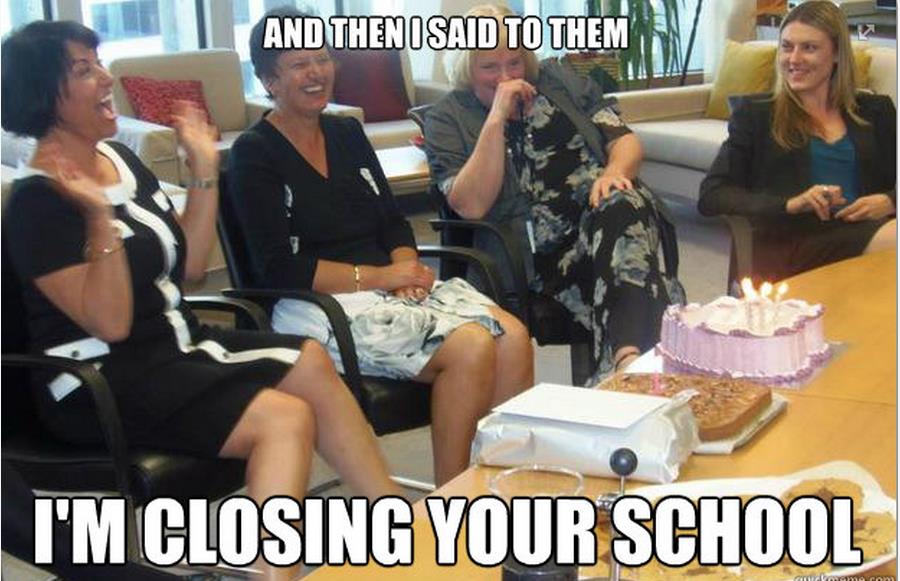After a month of community consultation throughout the country, I was excited – perhaps relieved – to be attending the launch of the Pasifika Education Plan 2013-2017. From memory it’s the government’s sixth Plan giving an overarching strategy on how to raise educational achievement for Pasifika learners in New Zealand. On this cold night in October last year I politely put to one side my utter disgust that the Ministry of Education only afforded one single month to seek consultation from the country’s quarter of a million Pasifika people, to read the findings of what our people had to say.
Admittedly at the time of the consultation, I was an employee of the Ministry, having noted on numerous occasions my dissatisfaction at the hurried nature of the consultation, but I’ve quickly learned that although many of us where white collars to work these days, we’re just professionally dressed ‘factory hands’. I started at the Ministry and was won to the vision of the Plan, which was our bible so to speak. Its vision resonated with me because it was about addressing issues with the education system, in order to achieve increased achievement for Pasifika. “The education system must work for Pasifika so they gain the knowledge and skills necessary to do well for themselves, their communities, Aotearoa New Zealand, the Pacific region and the world.” (2009-2012). I saw this as an admission that there were serious flaws with the system that were perpetuating the same monocultural, educational outcomes. Here, was a genuine opportunity to address the issues relating to students’ prior knowledge recognition in the classroom, culturally responsive pedagogy, inclusive teacher interactions, language medium of exchange and more in a system that was failing Pasifika young people.
To my astonishment, the vision for the new Plan had changed. “Five out of five Pasifika learners participating, engaging and achieving in education, secure in their identities, languages and cultures and contributing fully to Aotearoa New Zealand’s social, cultural and economic wellbeing.” Whilst this vision may sound similar to the earlier one, it’s significantly different. This vision puts the onus back on the learner, as if the system and those upholding it are equal and pure – befitting of a neoliberal and postcolonial theory of education. Seve-Williams (2010) provides a detailed analysis of shifting the blame onto the student whilst diverting attention from a flawed system. Current and popular public discourse leads us to believe that the system (or market) is without bias, so the blame of underachievement rests on students because it’s their responsibility to ‘learn’. Some of the issues I noted earlier such as culturally responsive pedagogy, inclusive teacher interactions, and recognition of students’ prior knowledge, point to systemic failures in education that students – many of whom are Pasifika – have to ‘wear’ in life. The effects on their communities are enormous.
So what of the change in vision statements? As an employee facilitating these community consultations, I vividly remember there being absolutely no questions on the vision. I recall parents and families talking about the aspirations they had for their children, a desire for bilingualism, the pride they experienced when a son or daughter completed NCEA level 2 and graduation ceremonies that were overwhelming. Those are the discussions that I recall vividly. But changing the vision statement? That was never on the agenda.
Wearing failure in life isn’t nice – in fact it’s painful. And obviously the government couldn’t handle the failure label, so cunningly gave it back to Pasifika learners in 2013.







A good question to ask is this: how is the Pasifika learners’ policy different from existing policy. If I take out the word Pasifika, the expression describes the lofty ambitions of the ministry:
‘Five out of five learners participating, engaging and achieving in education, secure in their identities, languages and cultures and contributing fully to Aotearoa New Zealand’s social, cultural and economic wellbeing.’
So: there is no Pasifika learners’ policy. There is a learners’ policy, which is expected to work for Pasifika.
The intention is to produce more of the same, but better and cheaper. (That is the theory behind charter schools, for instance.) Leaving aside the structural contradiction between ‘better’ and ‘cheaper’, this will only reproduce the same inequalities.
What does ‘recognition of students’ prior knowledge’ mean?
At a guess George, I’d say it suggests we should begin teaching students with a recognition that they do not all enter the process equally. For example, with you we’d need to start from scratch.
Malo Faanana, nothing more to say…totally agree!
When has this or any government listened to Pasifika? Great article by the way keep them coming.
Good article/blog thingee Fes. Interesting to hear your insights about the consultation etc while you were still an employee of MOE. You were like a secret agent/spy while at MOE AY?!
I think behind it all is a philosophical or ideological framework that these subtle changes are based on. Specifically, it is a framework based on neo-liberal principles & free market ideology that is pervasive throughout the political system. This has been dominant since the Think Big policies in the 1980s and the current Government is only taken this framework to new & possibly more sinister levels.
The response? Well, Pasifika themselves have to work out how they will respond. There’s a suite of short & long term responses available. The question I think is, how willing are Pasifika to respond?
Youre right on the money Efeso.
This is the government’s ridiculous attempt at masking its lack of conviction towards raising Pasifika achievements and its inability to create an education system and learning environment that addresses the needs of Pasifika learners. By simply saying that Pasifika learners will now be on par with the rest of the non-priority groups is just absurd. Its lipservice at best. As Professor Peggy Fairbairn-Dunlop (Tanugamanono proud) once put it, education for Pasifika without effective support, is not an opportunity.
Comments are closed.